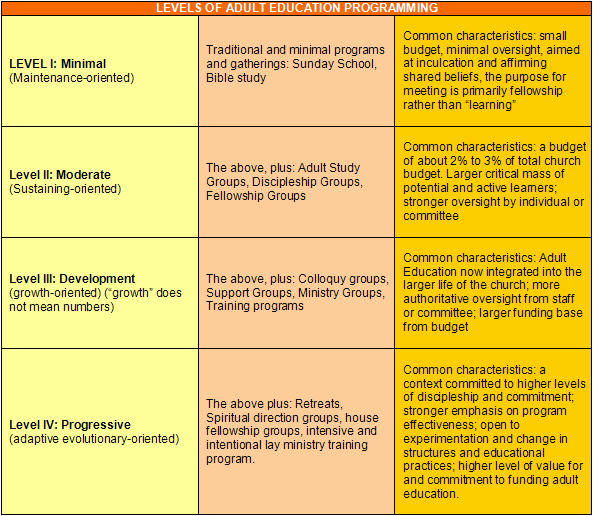Someone asked me for a list of congregations who had “strong adult education ministries.†I knew what he was asking, but the more I thought about it, the less able I was to compile a list. I got stuck on the question because what constitutes “adult Christian education†in congregations is all over the map—and that’s without even talking about effectiveness related the philosophy, objectives, and goals.
One clue for finding those congregations is whether or not they have a “real educator†on board—clergy or lay, volunteer or staff—who is responsible for shaping and overseeing the ministry. By a “real educator†I don’t mean a nice person who is willing to do the job, rather, a person who knows the field of education: educational theory, organization, programming, curriculum theory, and theories related to the effective practice of teaching and learning.
Then there’s the dilemma of identifying what constitutes a “good†program. By good do you mean “popularâ€, “well-attendedâ€, “large†or “effectiveâ€? The reality is that most congregations will offer the adult education program they are just able to given resources (budget, staff, personnel) and context (a university church will be able to offer something much different than a remote rural congregation by way of adult education). Unless you have an objective criteria that informs that question, then to identify what constitutes a “strong adult education” program may be comparing apples to oranges.
In terms of a “formal†adult Christian.Education. programming, here’s a quick and dirty schema (off the top of my head, a non-scientific mental doodle) to assess how progressive, and perhaps effective, an adult program may look like:

Share your thoughts.
- Where is your church on this chart?
- What, in your thinking, constitutes effective adult Christian education?
- Do you consider your church’s adult education program to be effective? Share why.

